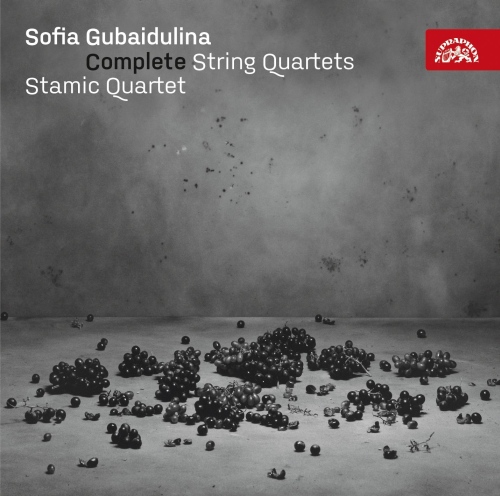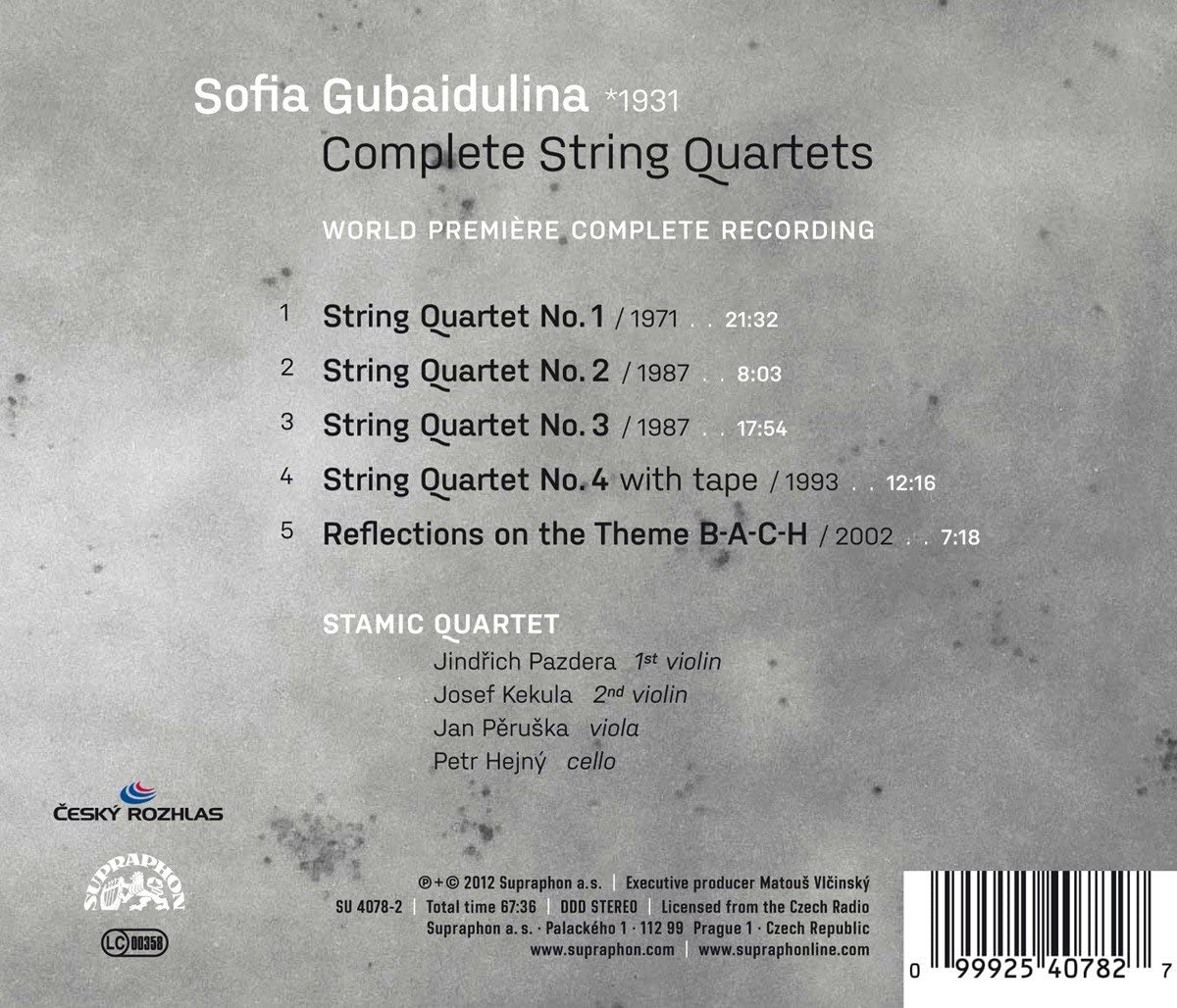
kompozytor
Gubaidulina, Sofia
tytuł
Gubaidulina: Complete String Quartets
wykonawcy
Stamic Quartet
nr katalogowy
SU 4078-2
opis
Sofia Gubaidulina, one of the most distinct composers of the present time, says of herself that she is “a daughter of two worlds, whose soul lives in the music of both the West and East”. From her father’s side, her life was entered by the world of Islamic culture, while her mother introduced her to Christianity, in which she found her identity in the Orthodox faith. Her quest for a singular style was strongly influenced by the legacies of J. S. Bach and Anton Webern, as well as Dmitri Shostakovich, who encouraged her to remain herself and “continue down the mistaken path” for which she was criticised by the guardians of aesthetic correctness in the Soviet Union. Gubaidulina’s personal story is one of a struggle to live in truth, conducted with calm, patience, perseverance and inner conviction. The five string quartets represent a singular journey towards a vision of freedom beyond the borders of any system: she extracts the material from beyond major-minor tonality, using micro-intervals, serial techniques, aleatory elements, unusual playing methods, thus revealing previously unthought-of acoustic possibilities of instruments, including the space itself, the movement of musicians, etc. The Stamic Quartet, an ensemble representing the famous Czech quartet school, is an attentive interpreter of the first complete recording.
nośnik
CD
gatunek
Muzyka klasyczna
producent
Supraphon
data wydania
23-03-2012
EAN / kod kreskowy
99925407827

(Produkt nie został jeszcze oceniony)
cena 75,00 zł
lubProdukt dostepny w niewielkiej ilości.
Wysyłka w ciągu 3 dni roboczych
Darmowa wysyłka dla zamówień powyżej 300 zł!
Darmowy kurier dla zamówień powyżej 500 zł!
sprawdź koszty wysyłki
































